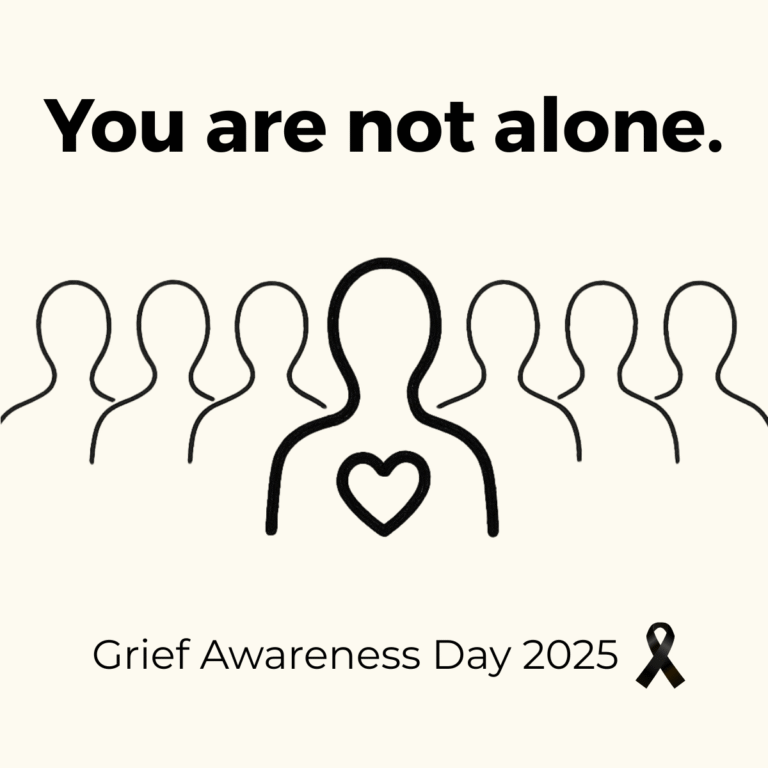“`html
- Aug 1
- Mental Health Treatment
Everyone experiences grief at some stage in life, yet it often feels profoundly lonely. On Grief Awareness Day, we take a moment to acknowledge the intricacies of grief, encouraging compassion, connection, and healing.
What Is Grief?
Grief is the natural emotional response to losing someone or something important. While it’s most commonly linked to the death of a loved one, it can also occur due to various life changes—like the dissolution of a relationship, relocation, job loss, miscarriage, trauma, or receiving a serious health diagnosis.
Everyone experiences grief differently. It can affect your emotions, thoughts, body, and even how you see yourself or your purpose. You might feel sadness, anger, confusion, guilt, loneliness, or even numbness. Physical symptoms like fatigue or changes in appetite are also common. All responses to grief are legitimate.
Viewing grief as a process rather than a solitary emotion can help alleviate feelings of shame and open up avenues for healing.
Why Grief Awareness Day Matters
Grief Awareness Day serves as a reminder that:
- Grief is a natural part of life, and there’s no one “correct” way to experience it.
- Discussing grief helps break down stigma. Avoiding the subject can leave individuals feeling more isolated.
- Education is vital. Highlighting this topic can raise awareness about available resources for dealing with grief.
How You Can Support Someone Who’s Grieving
- Recognize their loss and validate their feelings.
- Exercise patience. Some days will be more challenging than others.
- Assist them with everyday tasks. Grieving individuals often find even simple chores like cooking or cleaning overwhelming. Helping can alleviate some stress and allow them to focus on processing their feelings.
Ways to Manage Grief
If you’re dealing with grief, know that support is available, and you aren’t alone. Here are some self-help strategies to manage tough emotions:
- Reach out to family and friends. They’ll be more capable of supporting you when they understand your feelings.
- Keep up with regular exercise, balanced meals, and sufficient sleep to foster a sense of stability during difficult times.
- Seek professional assistance. Engaging with a healthcare provider or mental health expert is crucial when grief feels overwhelming or leads to harmful coping strategies.
Help is Available
If you or someone you know is facing mental health challenges, please call 877-505-HOPE.
“`


